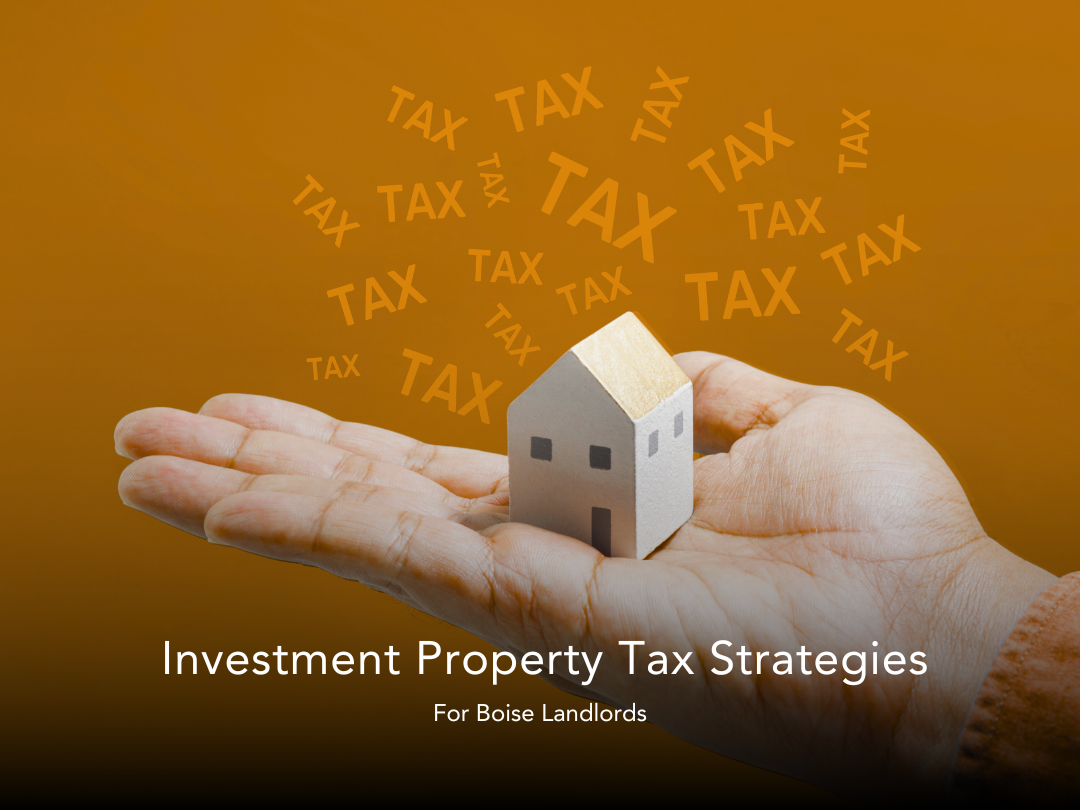Becoming a landlord can be an exciting venture, but it also comes with a range of responsibilities and challenges. Managing a rental property involves more than just finding tenants and collecting rent. Various aspects must be considered from property maintenance to tenant screening to ensure a successful and profitable rental business. This comprehensive guide will explore the key steps and considerations in rental property management in Boise, Idaho, tailored explicitly for first-time landlords. Whether you're new to the rental market or looking to improve your existing property management skills, this guide will provide valuable insights and practical tips to help you navigate the world of property management effectively.
1. Understanding the Boise Rental Market:
Before diving into rental property management, it's crucial to understand the local market in Boise. Research current rental rates, vacancy rates, and market trends specific to the area. This knowledge will help you set competitive rental prices, attract tenants, and make informed investment decisions.
2. Legal and Regulatory Compliance:
Being a landlord requires compliance with various laws and regulations to protect both tenants' and landlords' rights. Familiarize yourself with federal, state, and local laws governing rental properties in Boise. This includes understanding fair housing laws, landlord-tenant rights and responsibilities, and any specific regulations related to rental property management.
3. Preparing Your Rental Property:
Preparing your rental property is critical in attracting quality tenants and maximizing rental income. Start by thoroughly inspecting the property to identify any maintenance or repair needs. Address any issues and ensure the property is clean, safe, and in good condition before listing it for rent. Consider adding desirable features or upgrades to make your property stand out in the competitive rental market.
4. Effective Marketing and Tenant Screening:
You must develop a robust marketing strategy to find suitable tenants for your rental property. Utilize both online and offline channels to promote your rental property, such as listing websites, social media platforms, and local advertising. Craft compelling property descriptions and showcase high-quality photos to attract potential tenants. Once you receive inquiries, conduct thorough tenant screenings to ensure you select reliable and responsible individuals who will take care of your property and pay rent on time.
5. Lease Agreements and Documentation:
Creating a comprehensive lease agreement is crucial for setting clear expectations and protecting your interests as a landlord. Include essential terms such as rent amount, payment due dates, lease duration, pet policies, and maintenance responsibilities. Ensure that the lease agreement complies with local laws and regulations. Keep detailed records of all communication, contracts, and transactions related to your rental property.
6. Rent Collection and Financial Management:
Establishing a streamlined rent collection process is vital for maintaining a steady cash flow. Decide on a preferred payment method and clearly communicate it to your tenants. Consider utilizing online rent payment platforms to simplify the process and minimize the risk of late payments. Additionally, maintain organized financial records, including income and expenses related to your rental property, to facilitate tax preparation and financial analysis.
7. Property Maintenance and Repairs:
Regular property maintenance is essential for preserving the value of your investment and ensuring tenant satisfaction. Develop a proactive maintenance plan that includes routine inspections, addressing maintenance requests promptly, and scheduling preventive maintenance tasks. Maintain a network of reliable contractors and service providers who can assist with repairs and maintenance tasks as needed.
8. Tenant Communication and Relationship Management:
Effective communication with your tenants is key to maintaining a positive landlord-tenant relationship. Establish open lines of communication and respond promptly to tenant inquiries and concerns. Regularly check in with your tenants to ensure their needs are met and address any issues. Building strong relationships with your tenants can lead to longer lease terms and increased tenant satisfaction.
9. Dealing with Challenges and Conflict Resolution:
Even with careful planning and management, challenges can arise in rental property management. It's important to approach these challenges proactively and professionally. Develop conflict resolution strategies to address tenant disputes, maintenance issues, and other conflicts that may arise. Act in accordance with the law and seek legal advice if necessary to resolve complex situations.
10. Staying Informed and Evolving:
The rental property market is constantly evolving, and as a landlord, it's crucial to stay informed about industry trends, changes in regulations, and best practices. Join local landlord associations, attend seminars or workshops, and keep up with relevant publications to enhance your knowledge and skills as a property manager.
11. Rental Property Insurance:
As a landlord, it's crucial to protect your investment by obtaining the appropriate insurance coverage for your rental property. Standard homeowners insurance may need to provide adequate protection for rental properties. Consider purchasing landlord insurance or a dwelling fire policy to cover potential risks such as property damage, liability claims, and loss of rental income. Consult with insurance providers specializing in rental property coverage to ensure you have the right level of protection.
12. Eviction Procedures:
While it's always preferable to have a positive landlord-tenant relationship, there may be instances where eviction becomes necessary. Familiarize yourself with the eviction procedures outlined in Idaho landlord-tenant laws. Understand the legal grounds for eviction, the notice requirements, and the proper steps to follow in the eviction process. If faced with a situation that requires eviction, consult with legal professionals to ensure you navigate the process correctly and legally.
13. Keeping Up with Property Market Trends:
The real estate market is dynamic, and staying informed about market trends can provide valuable insights for your rental property business. Keep track of Boise's real estate market conditions, including changes in rental rates, vacancy rates, and property values. This information can help you make informed decisions about rent adjustments, property improvements, and potential investment opportunities.
14. Professional Property Management Services:
While managing your rental property on your own can be rewarding, it can also be time-consuming and demanding. Consider partnering with a professional property management company, like 208 Properties, to handle the day-to-day responsibilities of managing your rental property. Experienced property managers have the expertise and resources to effectively market your property, screen tenants, handle maintenance requests, and ensure legal compliance. Outsourcing property management allows you to focus on other aspects of your life or business while enjoying the benefits of a well-managed rental property.
15. Ongoing Education and Networking:
The field of property management is ever-evolving, and continuing education is essential for staying updated on industry best practices. Attend property management conferences, workshops, and seminars to expand your knowledge and network with fellow professionals. Engage in discussions and forums where you can share experiences, gain insights, and learn from others in the property management industry.
By implementing these strategies and staying informed about rental property management practices, you can successfully navigate the challenges of being a landlord in Boise. Remember, each rental property is unique, and adapting these guidelines to your specific situation and property is essential. With dedication, knowledge, and a customer-centric approach, you can establish yourself as a reputable landlord and maximize your rental property investment returns.











